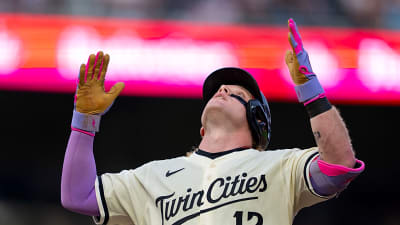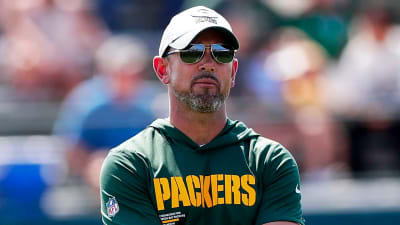
In a sport defined by ego, flash, and brutal competition, few names shine brighter—and more respectfully—than Saúl "Canelo" Álvarez. The red-haired warrior from Guadalajara, Mexico has etched his name not just into the record books, but into the spirit of boxing itself. While many boxers rise and fall through hype and controversy, Canelo has built a legacy grounded in discipline, humility, and relentless growth. He’s a man who doesn’t need to scream to be heard. He lets his fists talk—but when he does speak, the boxing world listens.
(c) Steve Marcus/Associated Press
In my opinion, Canelo is one of the most influential boxers of all time, not simply because of his championship belts, knockout power, or lightning hand speed, but because of who he is outside the ring: a symbol of grace, grit, and growth. He is proof that influence is about more than being undefeated—it's about how you rise after being knocked down and how you carry yourself at the top.
Canelo’s boxing style is like poetry written in punches—fluid, aggressive, but calculated. His speed is deceptive; it’s not just the speed of hands but of mind. He reads opponents like a seasoned chess master, adapting quickly and executing with surgical precision. Yet, what sets him apart isn’t just what happens inside the ropes.
Listen to any post-fight interview. Watch how he treats his opponents. There’s no trash talk for the sake of views, no degrading insults just to sell tickets. Canelo speaks with quiet confidence and respect. That’s not weakness—it’s strength. In an age where bravado often overshadows actual skill, Canelo’s dignity is a breath of fresh air. He represents a throwback to the classic era of boxing, when warriors didn’t need to belittle their enemies to prove their worth.
Canelo didn’t become a four-division world champion overnight. He didn’t coast on talent alone. His career is a story of evolution—a boy with a dream who turned into a man on a mission. From his early fights in Mexico to battling legends on the world stage, he’s taken on all challengers. He’s faced power punchers, slick movers, defensive geniuses, and hungry up-and-comers.
And yes, he’s lost. His first major defeat came at the hands of Floyd Mayweather Jr., one of the greatest defensive fighters of all time. At just 23 years old, Canelo was handed a boxing lesson by a master. But did that define him? No. In fact, it refined him. He didn’t run from the loss or make excuses. He studied it, learned from it, and came back sharper.
More recently, he lost to Dmitry Bivol in a move up to light heavyweight. Again, no excuses. He faced a bigger, stronger man and came up short. But again, that’s boxing. Sometimes you get knocked down—not just physically, but mentally, emotionally, publicly. But true greatness isn’t about staying undefeated. It’s about having the courage to fight on, to improve, to show up again. And that’s what Canelo does every time.
Canelo’s influence stretches far beyond the ring. In Mexico, he’s more than just a boxer—he’s a national hero. But he’s also a global ambassador for the sport, uniting fans from all backgrounds. He brings pride to his country not just through victories, but through how he represents it. The Mexican warrior spirit flows through him, but it’s fused with a modern sense of responsibility and maturity.
He shows young fighters that you don’t have to sacrifice humility for success. That you can speak with respect and still command attention. That you can suffer defeat and still be the face of boxing. In a world hungry for role models, especially in sports, Canelo offers something rare: a champion who knows he’s still a student of the game.
Outside the ring, Canelo is also redefining what it means to be a professional athlete. He’s taken control of his career in ways that few fighters have. From managing his own promotional company to carefully selecting fights that challenge and elevate him, he’s a businessman as much as a boxer. That level of control and vision sets a new standard for fighters who want to build legacies rather than just earn paychecks.
He’s also deeply involved in charity, often giving back to his community and supporting causes that go beyond boxing. His influence isn't just felt in stadiums or pay-per-view numbers, but in lives touched through his generosity and leadership.
Canelo Álvarez matters because he reminds us what greatness looks like when it's grounded in humility. He shows us that power doesn’t need to be loud. That losses don’t define you—how you respond to them does. That you can be a fierce competitor without losing your humanity.
He has created a new model for what a modern boxing champion can be: strong but respectful, wealthy but generous, famous but grounded. In many ways, his influence transcends the sport. He’s a global figure, not because he seeks attention, but because he earns it.
Canelo may still have years left in his career, but his legacy is already carved in stone. Not because he’s the hardest hitter or the fastest fighter—though he’s certainly both—but because of his character. In a sport often criticized for corruption, chaos, and controversy, Canelo offers clarity.
He is a reminder that the path to greatness isn’t always straight. You might stumble. You might fall. But with heart, humility, and hard work, you can rise stronger every time. Canelo’s story is still being written, but the chapters so far have already inspired millions.
And in the end, that’s what influence is all about—not just what you do, but how you make people believe in something greater. Canelo makes us believe—in boxing, in resilience, and in the quiet power of respect.
More must-reads:
- Matt Campbell finalizes program-friendly contract extension with Iowa State
- Top Micah Parsons landing spots as Cowboys' contract talks deteriorate
- The '250-strikeout MLB seasons' quiz
Breaking News
Trending News
Customize Your Newsletter
 +
+
Get the latest news and rumors, customized to your favorite sports and teams. Emailed daily. Always free!








